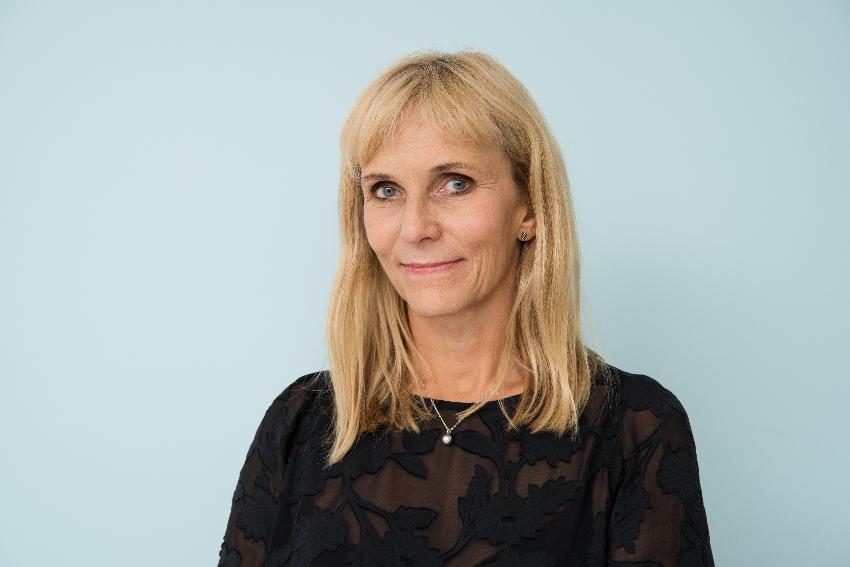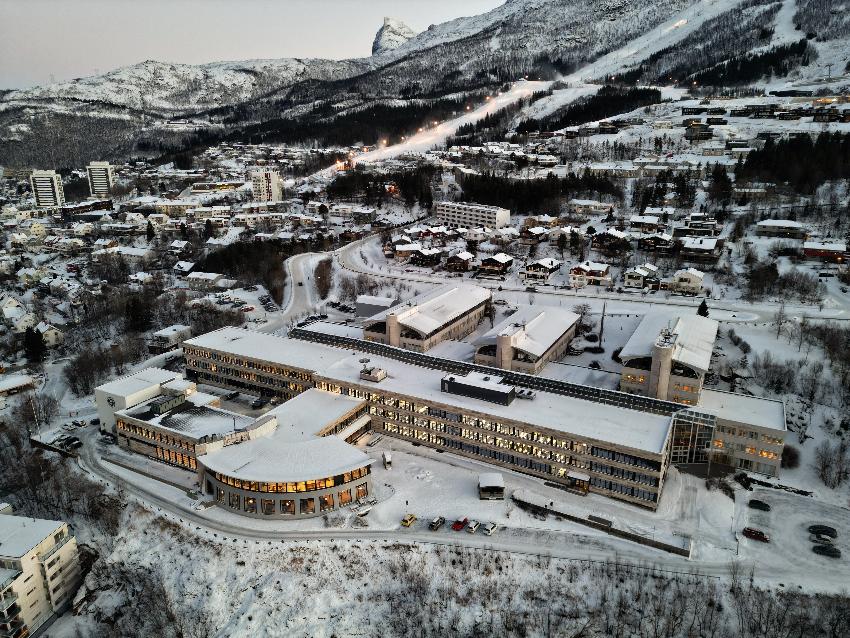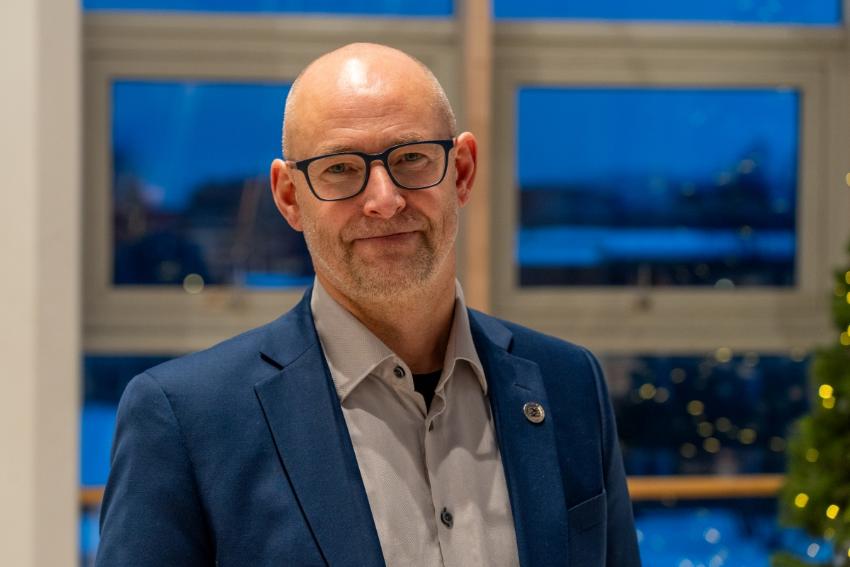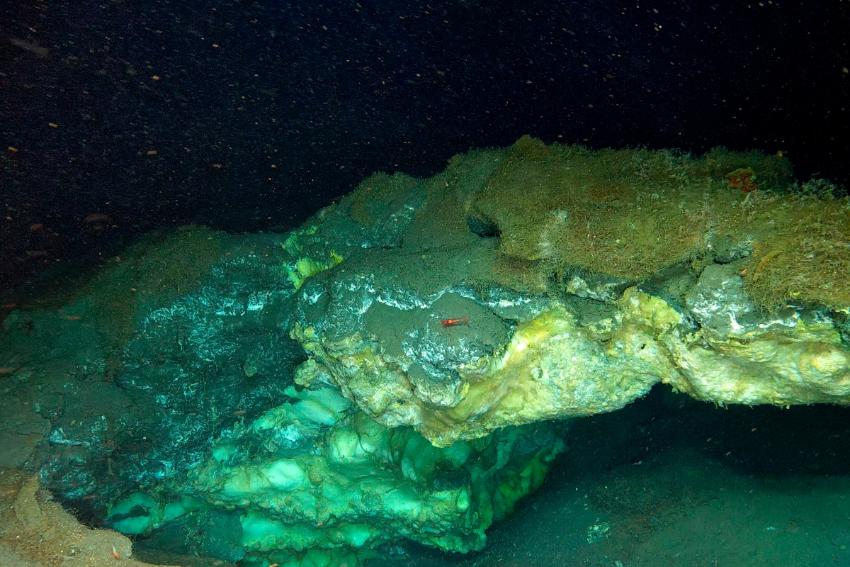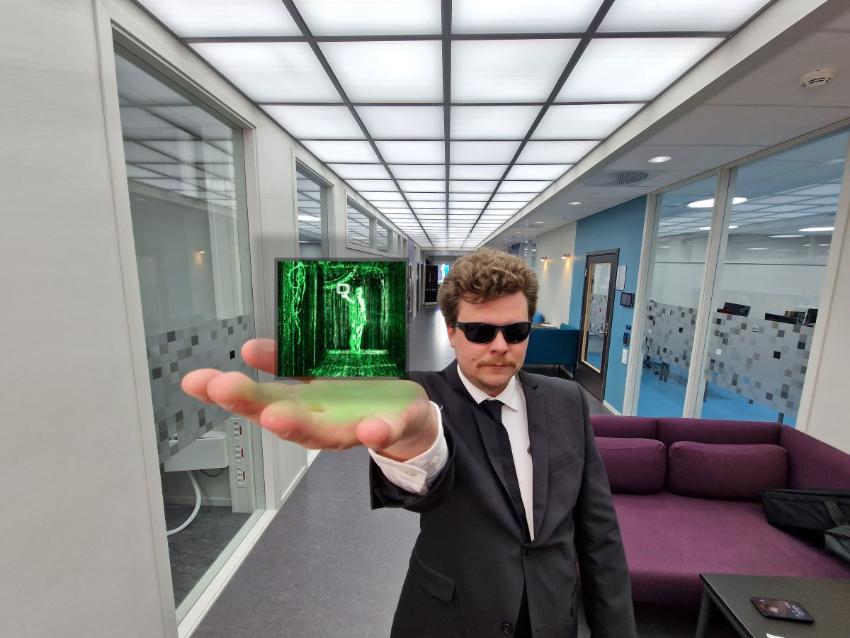Their love for mathematics brought 50 teenagers to Tromsø
Mathematics is maybe not the school subject that everyone loves, but the eyes of Ramona Poreitere from Riga and Aino Aulanko from Helsinki are shining when they are asked about anything related with mathematics.
The two young girls share a fascination for this subject: “In mathematics there is one exact truth, and you can prove it”, Aino states and Ramona adds to this “there is this certainty in mathematics that is in some sense comforting in an otherwise uncertain world, but at the same time solving math problems also involves an immense amount of creativity”.
The two girls were in Tromsø over the weekend as participants of the mathematics competition “Baltic Way”, which brought about 50 pupils from 10 countries to the Paris of the North. And in this group of 50 students between the ages of 15 and 18, the two girls are clearly not alone with their love for mathematics. “I love solving problems in mathematics as there is always something new to learn”, says Anni Tapionlinna who is also form Finland and her teammate Jussi Marttinen points out that “everything in mathematics is connected – that is very fascinating”. On an otherwise less crowded UiT campus on Saturday, the participants worked in teams on 20 quite challenging problems from 4 mathematical disciplines and tried to solve these within 4 and a half hours. At the end of this long period, the teenagers seem to be a little bit tired of course, but also very much enthusiastic about what they just worked on: “It was very much fun to think about these problems”, says Markus Farnebäck from Sweden and he adds “I have liked mathematics since I was a small boy, I think. It is amazing that you can draw every time again so interesting conclusions about so simple objects like natural numbers”. And Tomas Babelis from Lithuania adds to this that he is sure that mathematics is very important: “You can use mathematics to understand problems in the real world – from cool stuff like a pendulum to measure time, to brining people up into space: Mathematics is the core of whatever scientists discover”, he emphasizes.
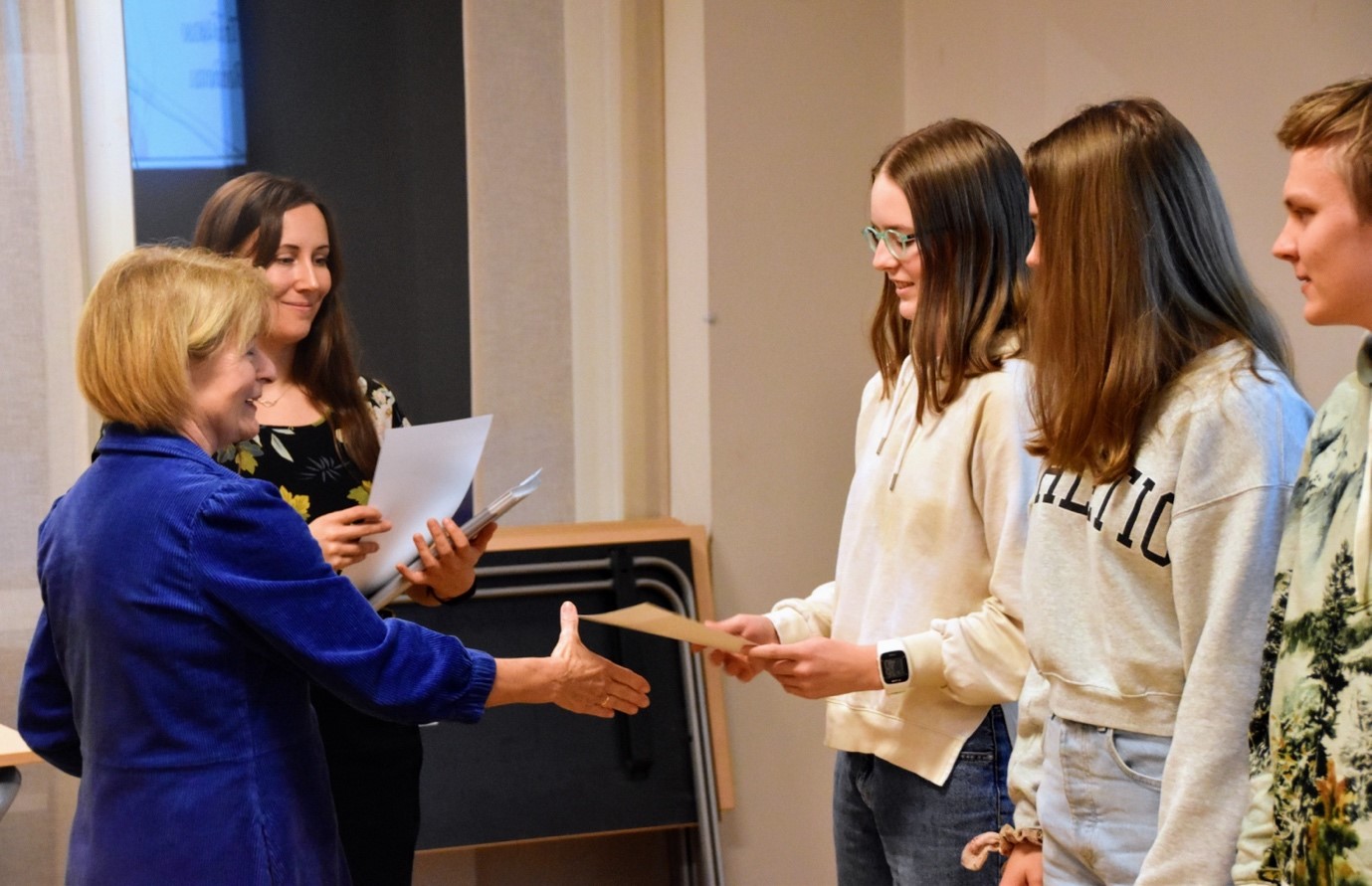 Anne FINLAND AND MATHS: Husebekk and Tine Hågensen hand out the diplomas to the team from Finland which received the 9th place. Foto: Cordian Riener/UiT
Anne FINLAND AND MATHS: Husebekk and Tine Hågensen hand out the diplomas to the team from Finland which received the 9th place. Foto: Cordian Riener/UiT
The yearly mathematics competition “Baltic Way” was initiated in 1990 and bears in its name the memory of the 630 km long chain of people across the Baltic countries in 1989 built as a peaceful demonstration against Soviet occupation. Initially, only the Baltic countries participated, but the list of participating countries grew over time. This year, high school students from Denmark, Estonia, Finland, Iceland, Latvia, Lithuania, Poland, Sweden, Norway and Germany gathered for this event – while the students from St. Petersburg could not participate. “This political dimension is of course not the main focus in this competition, but it is beautiful to see that teenagers from so many different countries come together and share their love for mathematics”, says Cordian Riener, who is one of the organizers of the event which was hosted at the newly established Lie-Størmer Center at UiT. “It has been quite some work that we have had to put into the preparations, butpreparations but seeing the enthusiasm and admiration that these kids have for mathematics really makes it worth the while!”
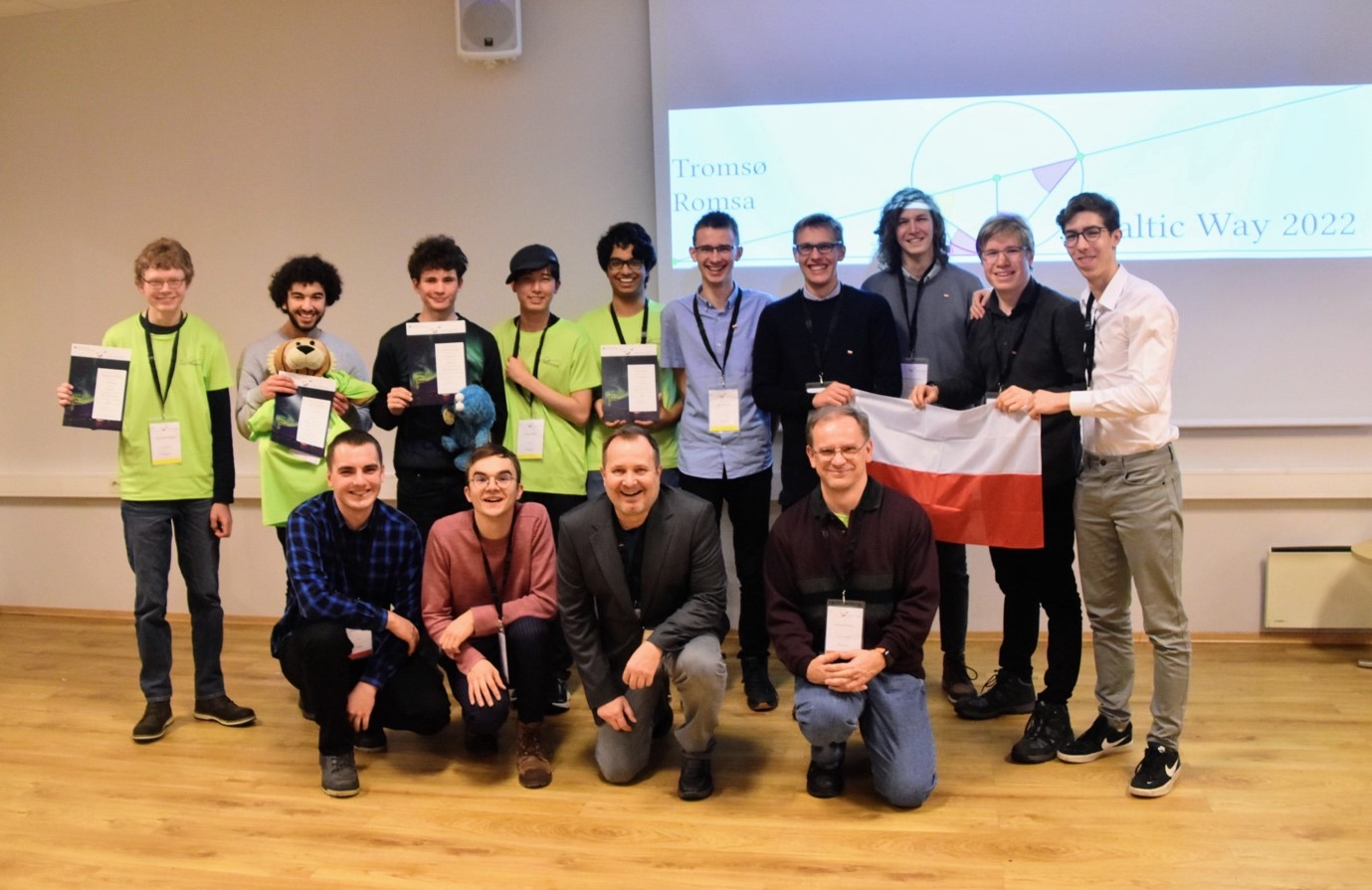 WINNERS: The German and the Polish team together with their team leaders are happy and exited about the 1st place in the competition Foto: Cordian Riener/UiT
WINNERS: The German and the Polish team together with their team leaders are happy and exited about the 1st place in the competition Foto: Cordian Riener/UiT
After a long night for the correctors and the jury on Saturday, the points for each of the teams are counted and the winning team was determined, and it was time for the culminating prize ceremony on Sunday. Anne Husebekk, UiT’s former rector who is the chairwoman of the board of the Tromsø Research Foundation - the main financial supporter of the event – could welcomed the participants to TUIL arena. “Mathematics is becoming more and more important - also my own research in medicine would not be possible without further advancements in mathematics”, she tells said to the contestants. "As former rector of UiT I am happy to see that this important subject is vital at our university, and I hope you have taken good memories from Tromsø and UiT and I may see some of you in the future here as exchange students”. The ten teams then are called to the stage to receive a diploma – in decreasing order of placement, from 10 to 1.
After the third team leaves the stage with their diplomas, the excitement on the faces of the two remaining teams, Germany and Poland is tense. Who will be the next team to be called and who will be the winner? This is when Dáavid Kunszenti-Kovács who has previously won several medals for Norway under the International Mathematical Olympiad and who was serving as the Chairman of the Jury has a surprise: “This year we are in the situation that two teams scored exactly the same number of points. We thus have two winners!” Within seconds the tension on the faces of the contestants from the two remaining teams relaxes and their eyes are shining when Anne Husebekk calles them to the stage to receive their diploma. “The mountains here are even more beautiful than the mathematics problems” – says German contestant Dmitrii Galatenko to Anne Husebekk when he receives the diploma and is asked if he enjoyed being in Tromsø.
Before the contestants leave Tromsø for their home country again, a farewell dinner at Fjellstua gives them the possibility to take a beautiful view over Tromsø. With all the excitement and hard work behind him, the contestant Toomas Herodes from Estonia explains: “Mathematics inspires me, it is beautiful, but in such a competition I especially love the social part here, to meet open-minded people that I have a lot in common with.” Looking down on Tromsø from above, Aino and Ramona are certain: “It was so amazing to come so far up north. Now I can say, I have been above the Arctic Circle. This makes this event even more special for me.” And it is in this relaxing atmosphere after the competition with a beautiful view over Tromsø that the Baltic Way 2022 ends. Even though their ways now are parting, their love for mathematics will bring many of the teenagers together next year again, during the International Mathematical Olympiad in Japan and the next Baltic Way in Germany. And the diploma from this year’s Baltic Way with a picture of the Northern Lights will be a reminder to their journey to Tromsø.
Kortnytt fra Institutt for matematikk og statistikk, Fakultet for naturvitenskap og teknologi
-
Fiskeri- og havbruksvitenskap - bachelor
Varighet: 3 År -
Fiskeri- og havbruksvitenskap - master
Varighet: 2 År -
Akvamedisin - master
Varighet: 5 År -
Bioteknologi - bachelor
Varighet: 3 År -
Arkeologi - master
Varighet: 2 År -
Musikkteknologi
Varighet: 1 År -
Peace and Conflict Transformation - master
Varighet: 2 År -
Computer Science - master
Varighet: 2 År -
Geosciences - master
Varighet: 2 År -
Biology - master
Varighet: 2 År -
Technology and Safety - master
Varighet: 2 År -
Physics - master
Varighet: 2 År -
Mathematical Sciences - master
Varighet: 2 År -
Biomedicine - master
Varighet: 2 År -
Computational chemistry - master
Varighet: 2 År -
Law of the Sea - master
Varighet: 3 Semestre -
Biologi - bachelor
Varighet: 3 År -
Medisin profesjonsstudium
Varighet: 6 År -
Nordisk - årsstudium
Varighet: 1 År -
Luftfartsfag - bachelor
Varighet: 3 År -
Pedagogikk - bachelor
Varighet: 3 År -
Arkeologi - bachelor
Varighet: 3 År -
Informatikk, datamaskinsystemer - bachelor
Varighet: 3 År -
Informatikk, sivilingeniør - master
Varighet: 5 År -
Likestilling og kjønn - årsstudium
Varighet: 1 År -
Historie - bachelor
Varighet: 3 År -
Geovitenskap- bachelor
Varighet: 3 År -
Biomedisin - bachelor
Varighet: 3 År -
Kjemi - bachelor
Varighet: 3 År -
Samfunnssikkerhet - bachelor
Varighet: 3 År -
Matematikk - årsstudium
Varighet: 1 År -
Ergoterapi - bachelor
Varighet: 3 År -
Fysioterapi - bachelor
Varighet: 3 År -
Radiografi - bachelor
Varighet: 3 År -
Automasjon, ingeniør - bachelor (ordinær, y-vei)
Varighet: 3 År -
Samfunnssikkerhet - master
Varighet: 2 År -
Kunst - bachelor
Varighet: 3 År -
Kunsthistorie - master
Varighet: 2 År -
Farmasi - bachelor
Varighet: 3 År -
Farmasi - master
Varighet: 2 År -
Religionsvitenskap - årsstudium
Varighet: 1 År -
Romfysikk, sivilingeniør - master
Varighet: 5 År -
Klima og miljøovervåkning, sivilingeniør - master
Varighet: 5 År -
Sosialantropologi - bachelor
Varighet: 3 År -
Bærekraftig teknologi, ingeniør - bachelor
Varighet: 3 År -
Forkurs for ingeniør- og sivilingeniørutdanning
Varighet: 1 År -
Historie - master
Varighet: 2 År -
Odontologi - master
Varighet: 5 År -
Anvendt fysikk og matematikk, sivilingeniør - master
Varighet: 5 År -
Barnevernsarbeid - master
Varighet: 2 År
